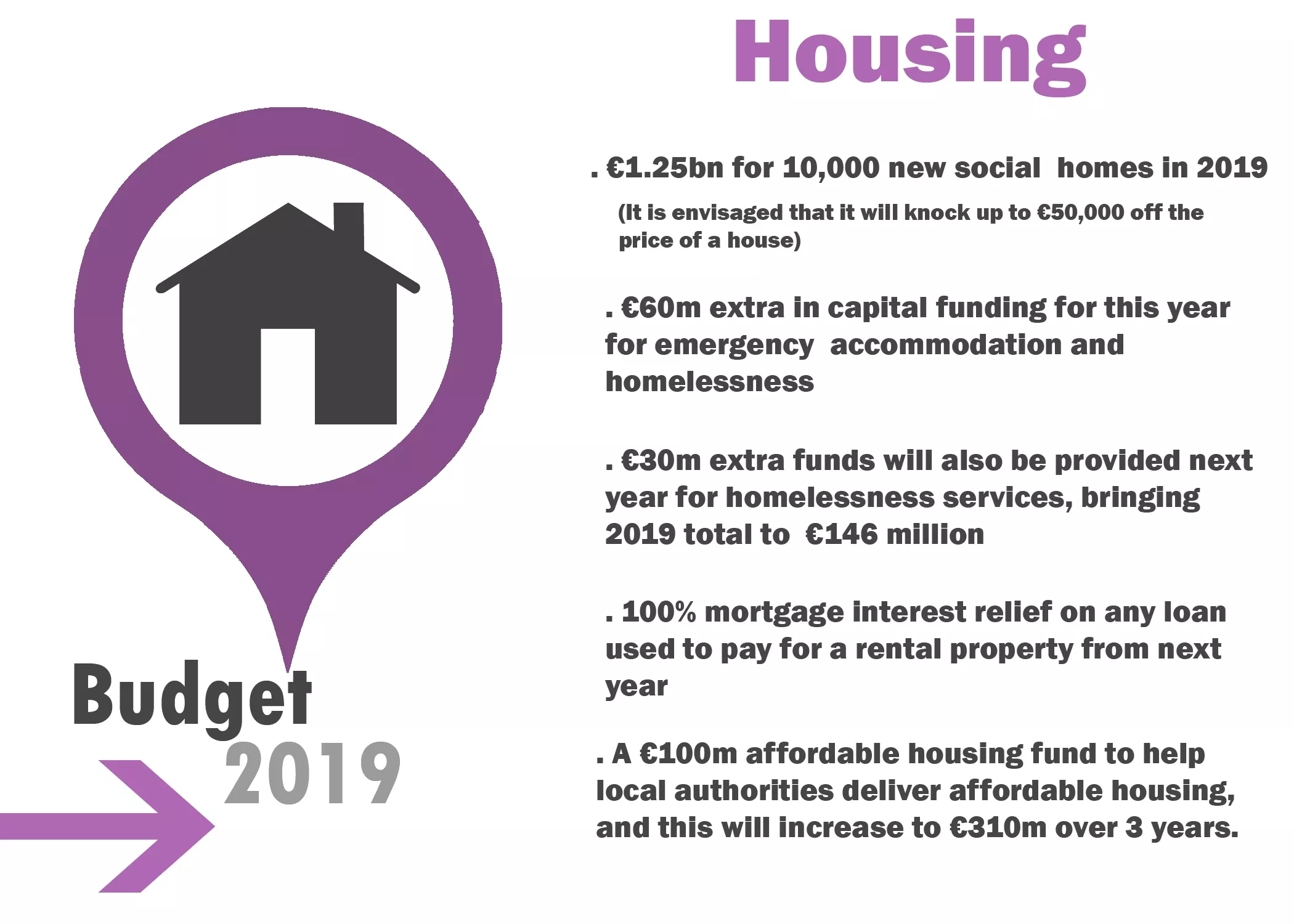The more I think about it, as the Government published its finance bill, following last week’s budget, the more inappropriate the whole stance of the latest fiscal policy offering seems to be, writes Jim Power.
The budget took a net €366m out of the economy, through taxation measures, with the betting tax, the wholly inappropriate increase in the Vat rate for the hospitality sector, and the increase in excise duty on tobacco the key revenue-raising measures.
The tax giveaway came through the very minimal relaxation of the personal tax burden.
On the other hand, the expenditure increases, and the previous commitments given on expenditure, will combine to deliver a very significant increase in government expenditure in 2019.
By no stretch of the imagination could Budget 2019 be described as pro-business or, indeed, as helpful to those who get up early in the morning.
Health, housing, and social welfare recipients were the only real winners.

I found the whole stance of the budget quite depressing, but when viewed in the context of the international uncertainties that are intensifying by the day, it seems pretty reckless.
The solution to all of our problems, in health and housing, is just to throw money at them. Unfortunately, it is not clear that there is any real strategy behind these spending plans.
Merely throwing money into the health service, without any real attempt to reform the way in which the service is delivered, is likely to just exacerbate the inefficiencies and, inevitably, annual overspends will continue.
And I am confused about what Irish housing policy really is. We have had so many schemes announced, and so many special financial packages over the past couple of years, it is hard to figure out if new initiatives are being introduced or if we are just getting previously-announced measures repackaged and sent out in a new spin cycle.
Prudent management of the public finances does not describe Budget 2019, but I suppose that is not surprising, given the many different political voices and forces that are driving this government.
‘New politics’ is not conducive to prudent behaviour. This is a risky way to run the economy and the public finances, given that Irish public debt is still dangerously high and that international uncertainties are intensifying.
Brexit remains an unpredictable force that defies all logic and common sense. Global equity markets are experiencing a lot more nervousness and volatility, after more than nine glorious years for equity market investors.
Last week was bad for equity markets. This week has been less bad, but there is a heightened sense of nervousness and uncertainty.
In the year to date, the US Dow Jones Industrial Average is up by 4.4% and the S&P 500 is up by 5.1%. However, the German market is down by 9.2%; the Italian market is down by 9.6%, as that country grapples with its latest fiscal woes; the French market is down by 2.4%; the Hong Kong market is down by 14.9%; and the Ftse-100 is, not surprisingly, down by 8%.
At one level, these equity market returns may just be reflecting a sense of fatigue, after a nine-and-a-half-year bull run, but there are worrying international forces at play.
Emerging markets are becoming quite volatile. Argentina, China, Venezuela, and Turkey are all experiencing difficulties; Pakistan has just applied for an IMF bailout; the Saudi Arabian situation looks quite dangerous; and the strong dollar is pressurising the debt-servicing ability of many emerging economies.
In the so-called developing world, Italy is struggling, the Federal Reserve is increasing US interest rates, and the markets are a bit concerned that the pace of tightening might intensify, as evidenced by the fact that US bond yields are rising quite strongly.
Last year was great for the global economy, 2018 is good, but not great, and the outlook for 2019 is less clear than six months ago.
For the small, open Irish economy, the high level of public debt increases our vulnerability to a shock, but our political classes seem quite oblivious to these international threats.






